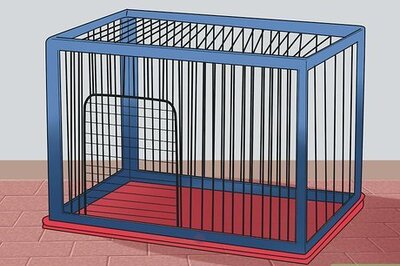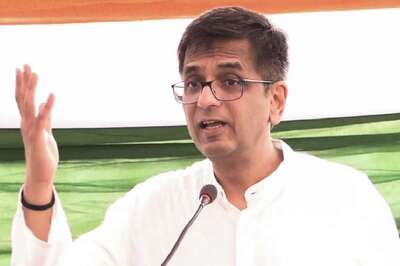
views
Srinagar: Jammu and Kashmir Governor Satya Pal Malik’s decision to dissolve the state assembly despite rival alliances staking claim to form the government is liable to be challenged, experts have opined, but neither of the sides has yet made any move to approach the courts.
PDT Achary, a constitutional expert and former secretary general of the 14th and 15th Lok Sabha, said the Governor cannot take such a decision. “As per law, if the Governor has received a letter stating that a party seeking to form the government and it has numbers then the only option before him is to invite the party to form the government,” he said.
Senior lawyer from J&K Zaffar A Shah echoed Achary’s views and said the dissolution of the assembly can be questioned in courts. Shah referred to famous SR Bomai case in which the Supreme Court had overturned the central government’s decision to impose President’s rule in Karnataka in 1989.
Bommai, who was the chief minister of the Janata Dal government, had gone to Supreme Court against the Governor’s decision after the Karnataka High Court dismissed his writ petition.
The case took five years, and a nine-judge Constitution Bench on March 11, 1994, stated that a hostile central government cannot dismiss state governments, overstep its powers. The majority of a government should be tested on the floor of the House, the court had ruled.
“I think that in J&K also the case can be argued on same lines,” Shah said.
In other states, President’s rule is imposed under Article 356, but in the case of Jammu and Kashmir, Governor’s rule is imposed for six months until a new government is formed.
The Governor, in a communique issued late at night, stated that the “impossibility of forming a stable government by the coming together of political parties with opposing political ideologies” led him to dissolve the assembly.
Constitutional expert Subhash C Kashyap, who was the secretary general of the seventh, eighth and ninth Lok Sabhas, differed with Achary and Shah, and said the Governor was well within his rights to call for elections despite there being two claimants to power.
“It needs to be seen whether the court admits this case or not because there has been no transgression of constitutional provisions by Governor,” he told News18.
The Governor, as per Kashyap, can dissolve the Assembly even if he is in receipt of a letter if he thinks that there is a possibility of horse trading of MLAs or other inside information.
The Governor, in his statement explaining the rationale behind his action, had state that there was “extensive horse trading and possible exchange of money” to get the support of the “legislators belonging to widely diverging political ideologies”. He had also cited the surging militancy as one of the reasons for dissolving the assembly.
None of the two rival claimants – Mehbooba Mufti’s Peoples Democratic Party in alliance with Congress and backed by National Conference or Sajad Lone’s People’s Conference backed by the BJP - seems interested in moving the court, at least for now.
Sources in the PDP said that there has been no decision or even discussion in the party about taking the legal route.
“In one way it is a win for the PDP because it looked headed for a split. Now the danger of its members joining Sajad has lessened,” said a PDP insider.
“Since the past five months, regardless of political affiliations, we shared the view that the state assembly be dissolved immediately to avert horse trading and defections,” Mufti also tweeted.
Omar Abdullah of the National Conference, before supporting the grand alliance, had asked for elections and even today he has hinted at the same. His party’s provincial president Nasir Sogami said the party’s ready to face the court.
PDP rebel MLA, Imran Raza Ansari, who has joined hands with Sajad Lone also said that “elections is the only option”.
(The author is a Kashmir-based freelance journalist).




















Comments
0 comment